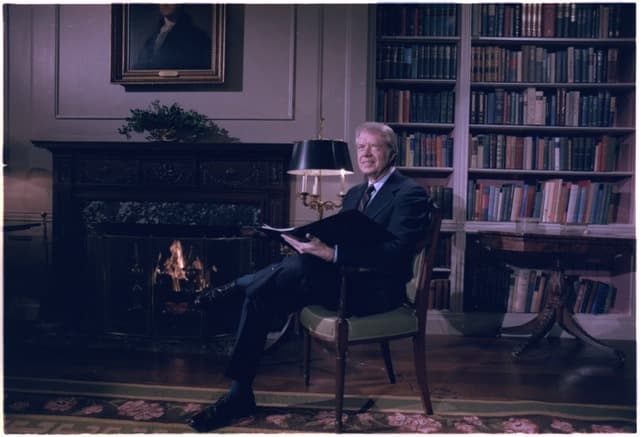As President Carter Lies in Hospice, Let’s Reflect on His Positives
The prohibition against speaking ill of the dying has disappeared 280 characters at a time on Twitter, but while reading biographies of each president in order 20 years ago, I always seek to find the positives.

President Carter, 98, is spending his final days in hospice care at home. Republicans struggling to find something nice to say about the Democrat that won’t offend their base may settle upon the old canard, “Without him, we never would have had President Reagan.” Such eulogizing is not only lazy; it does a disservice to both men.
Please check your email.
A verification code has been sent to
Didn't get a code? Click to resend.
To continue reading, please select:
Enter your email to read for FREE
Get 1 FREE article
Join the Sun for a PENNY A DAY
$0.01/day for 60 days
Cancel anytime
100% ad free experience
Unlimited article and commenting access
Full annual dues ($120) billed after 60 days

